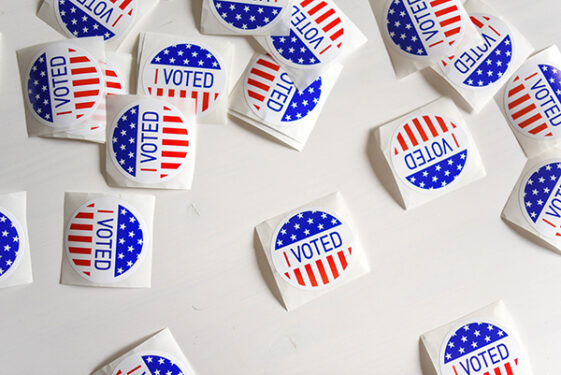
PROSPECT HEIGHTS — The New York City Council’s move to allow non-citizens to vote in municipal elections is setting the stage for a court battle over immigrants’ rights versus the privilege of citizenship.
Jerry Kassar, chairman of the New York State Conservative Party, said his party plans to join forces with the state’s Republican Party to file a lawsuit to stop the new law from taking effect.
“We will be initiating a lawsuit under the firm belief that this is not allowed under the state constitution,” said Kassar, who stressed that the right to vote should remain a privilege afforded only to U.S. citizens.
While the state constitution doesn’t specifically contain language prohibiting non-citizens from voting, “it talks about citizens voting,” Kassar said. “And by ‘citizens voting’ I don’t think they were thinking about non-citizens voting.
On Thursday, the Council passed, by a vote of 33-14, with two abstentions, a bill permitting legal immigrants who are not U.S. citizens to vote in municipal elections for such offices as mayor, comptroller, and city council.
The new eligibility would apply to green card holders, Deferred Action for Childhood Arrivals (DACA) recipients, and people with work permits who have lived in New York City for at least 30 days.
Undocumented immigrants would not be eligible to vote under the legislation. Non-citizens would still be ineligible to vote in statewide and federal elections.
The bill would affect an estimated 800,000 people, according to the Mayor’s Office of Immigrant Affairs. Of the newly eligible voters, an estimated 130,000 are from the Dominican Republic and 117,000 are from China.
Passage of the legislation was hailed by immigration advocates as a major step forward.
“By doing this, New York City is recognizing the rights of hardworking immigrants who live here, pay taxes, and have proven themselves to be essential to the life of our city,” said Ligia Guallpa, executive director of the Workers Justice Project, a Brooklyn-based organization that helps immigrants find jobs.
“Immigrants are part of the fabric of our communities, and they deserve to have a say in who represents the community,” Guallpa added.
She estimated that hundreds of thousands of people living in the Diocese of Brooklyn (locally called “the Diocese of Immigrants”) will become eligible to vote under the bill.
But Mayor Bill de Blasio has questioned the legality of the bill, saying that he was unsure if the Council would need permission from the State Legislature to bring such a measure up for a vote. He said, however, that he would not veto the legislation, which will become law within 30 days if the mayor doesn’t veto it.
Councilman Ydanis Rodriguez, the bill’s sponsor, called it a milestone in the city’s history. Rodriguez, a Democrat who represents Washington Heights, came to the U.S. from the Dominican Republic in the mid-1980s and became a U.S. citizen.
“Fifty years down the line, when our children look back at this moment, they will see a diverse coalition of advocates who came together to write a new chapter in New York City’s history by giving immigrant New Yorkers the power of the ballot,” he said in a statement.
However, the bill faced pushback from Republican council members.
Republican Councilwoman Inna Vernikov, a Ukrainian-American representing Brighton Beach, voted against the legislation and questioned the motives of its supporters.
“As an immigrant myself, I understand that this bill isn’t about expanding rights. It’s about expanding Democratic power in this city,” Vernikov tweeted.
There is a precedent for non-citizen voting participation. Non-citizens are permitted to vote in school board elections in San Francisco, and there are towns in Maryland and Vermont where non-citizens can cast ballots in local elections.
New York permitted non-citizens to vote in local school board elections until the boards were abolished in 2002 when the State Legislature gave the mayor the power to run the city’s school system.
With the new bill, New York would become the largest city in the nation to allow non-citizens to vote in citywide elections.
